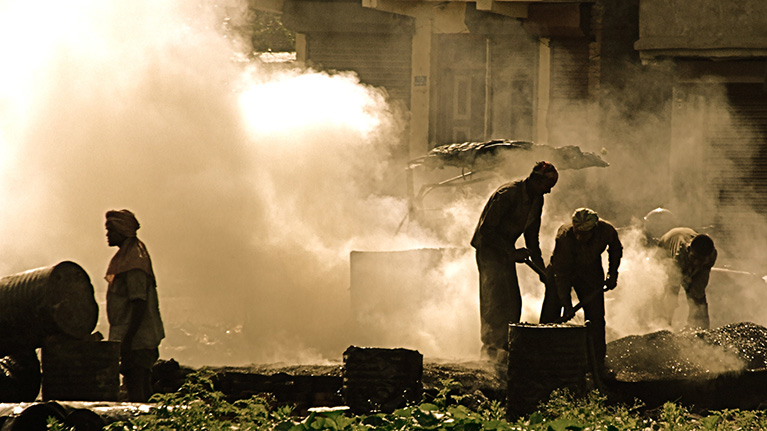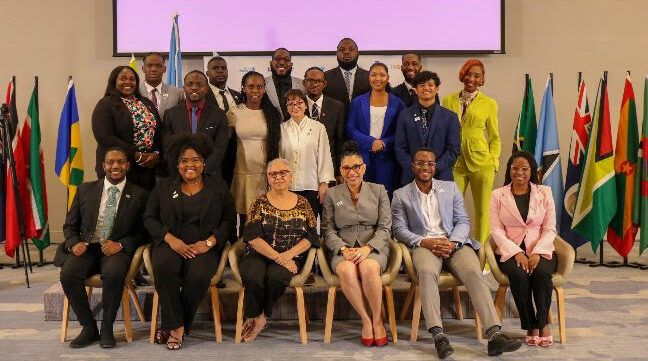This news article is a production distributed through Caribbean News Service. It is made freely available to your media and we encourage publishing and redistribution, giving credit to Caribbean News Service (CNS).
by Dizzanne Billy – CNS Contributor
PORT-OF-SPAIN, Trinidad, Nov 26 2015 – Greenwashing is not difficult to spot. It looks something like a bear in sheep’s clothing.
In Trinidad and Tobago, energy companies do it all the time. So much so, that it reminds me of that Sesame Street song that goes “snails do it, slugs do it, even tiny little bugs do it, let’s do it, let’s lay an egg.” Similarly, painting your company’s environmentally hazardous practices in green paint and sprinkling clichéd, green lingos has become something that they are all doing.
Keep the public in the dark about the waste we emit, while we portray ourselves as promoters of a healthy and sustainable world.
The public needs to know the real story; you can claim to be green and spend billions of dollars on campaigns but your actual operations affect billions of lives in the end.
Energy companies rake in obscene amounts of money from the resources of T&T and in tandem with the greenwashers, they engage in large-scale corporate social responsibility (CSR) and community projects and are viewed as taking the moral high-ground by giving back to society. I recently had the opportunity to chide myself for attending the launch of a climate change project by such a company which touted a green message while in the same breath spoke of the extraction they’re involved in in T&T.
Yes, the dirty money goes to good uses through CSR, however, on the other side of that coin we see the 11 oil spills in 2014 alone, contamination of our air and water, large-scale ecological damage, and health and safety concerns. Does a green image lead to real benefits for the people when we consider the not-so-green practices of the oil and gas industry, particularly when there is a lack of synergy between environmental protection and the economy?
If that doesn’t shock you, take a gander at this fact. The UN climate conference (COP21) is being largely funded by the Coal industry.
A new report on Monday by Corporate Accountability International highlights that four of the leading sponsors of this year’s COP are collectively responsible for more than 200 megatonnes of CO2 emissions worldwide.
The report titled, ‘Fueling the Fire – The corporate sponsors bankrolling COP21’ reveals how European energy giants Engie, EDF, Suez Environnement, and BNP Paribas collectively own more than 46 coal-fired power plants around the world, including investments in oil sands exploration in Canada and fracking for shale gas in the UK. This raises serious concerns as to the influential role that these polluting companies play in the outcome of negotiations and soils any remaining shred of hope for climate change action as a moral obligation, as many COP21 sponsors have one major thing in common- records of direct policy interference.
Isn’t this a case of keeping civil society out of the room while you sleep with the devil?
According to Patti Lynn, Executive Director of Corporate Accountability International the decision to allow these large polluters to sponsor the conference is “akin to hiring a fox to guard a henhouse”
Where is the sense in stating that your company is “committed to a decarbonised world,” while also being an active member—alongside ExxonMobil and Shell—of BusinessEurope, which has been linked to openly opposing the “market deployment of energy produced from renewable sources” across Europe? Poppycock!
Polluters are running things, even in a space where decarbonisation is supposed to be the ultimate goal. In 2014, the sponsoring energy giant Engie directly profited from more than 131 megatons of greenhouse gas emissions. That is equivalent to the pollution emitted from driving a car around the globe 12 million times.
This sort of undermining must not continue if environmental justice is to be achieved. According to Jesse Bragg, of Corporate Accountability International, “we’re lacking the political will because it has been co-opted by big fossil fuel companies.” T&T is extremely exposed to domination by such companies. When Shell bought BG Group, the then administration praised the occurrence as though manna came from heaven. More exploration! Increased exploitation! Who needs renewable energy? Rejoice!
A direct acceptance of our dependency. Another story for another day.
Indeed, in T&T the oil and gas companies control the economy and this will affect our policies toward climate change action. If the politicians are accountable to Papa Polluter, then how can they actively implement strong policies to deal with our contribution to climate change?
We are not concerned with your attempts to greenwash your pollution. We’re saying #KickBigPollutersOut and #KeepUsInTheRoom.
(Dizzanne Billy is the President of the Caribbean Youth Environment Network (CYEN) in Trinidad and Tobago, where she works in the areas of education and public awareness with regard to environment and development issues. She is a climate tracker with Adopt-A-Negotiator and an advocate for climate change action).




